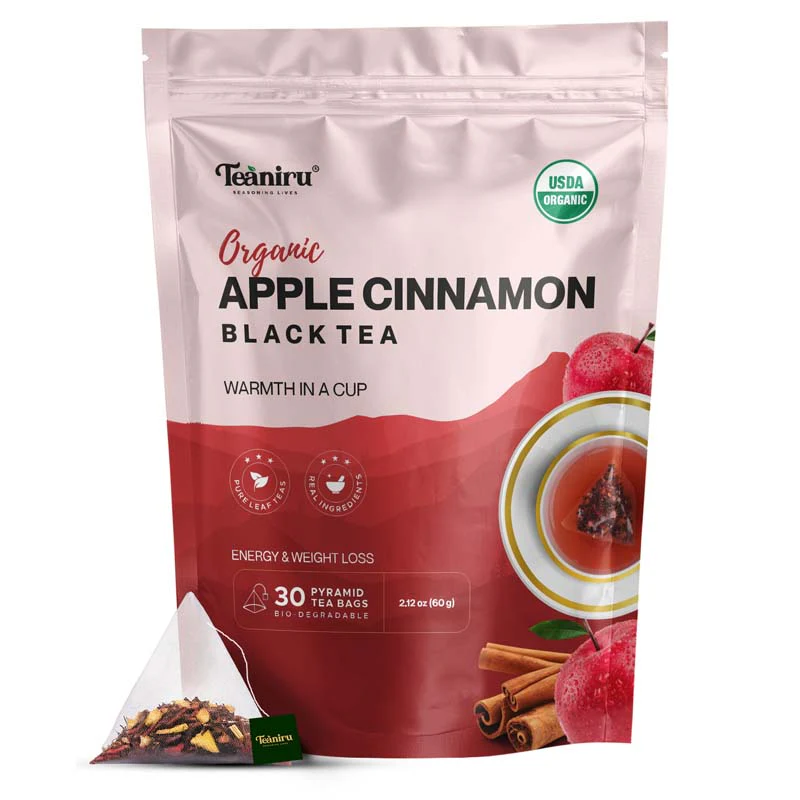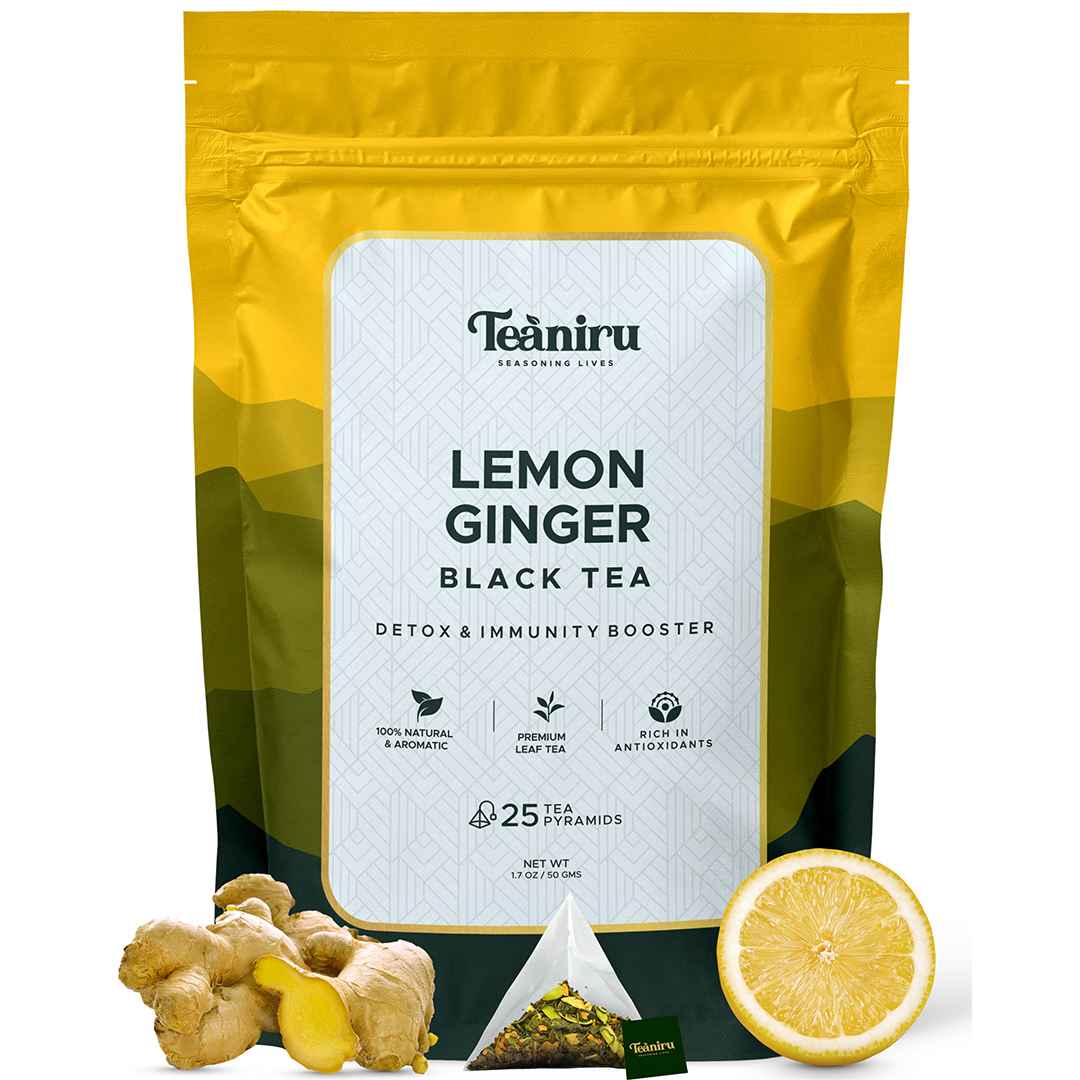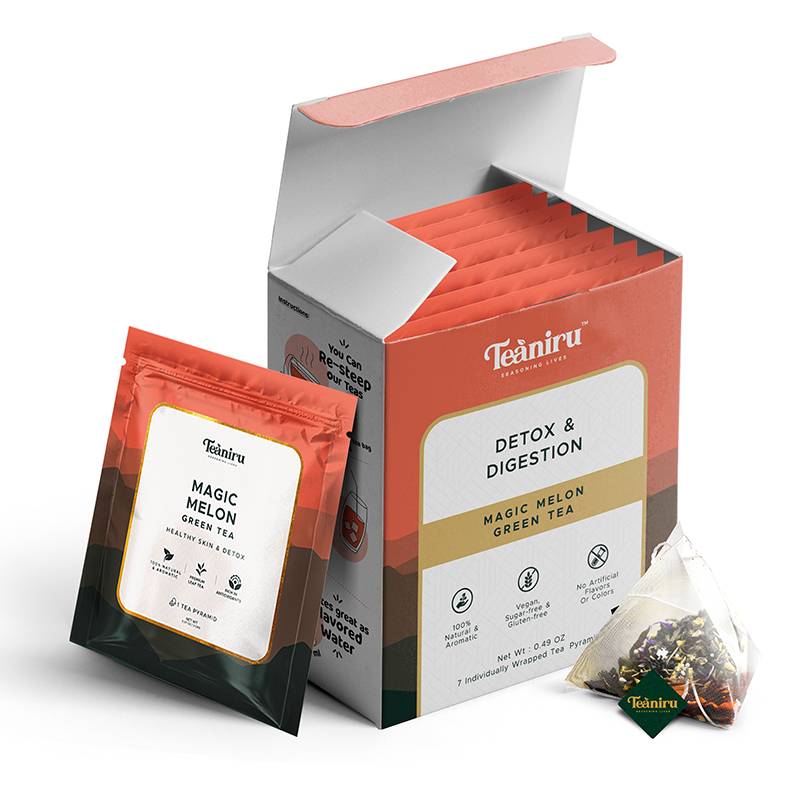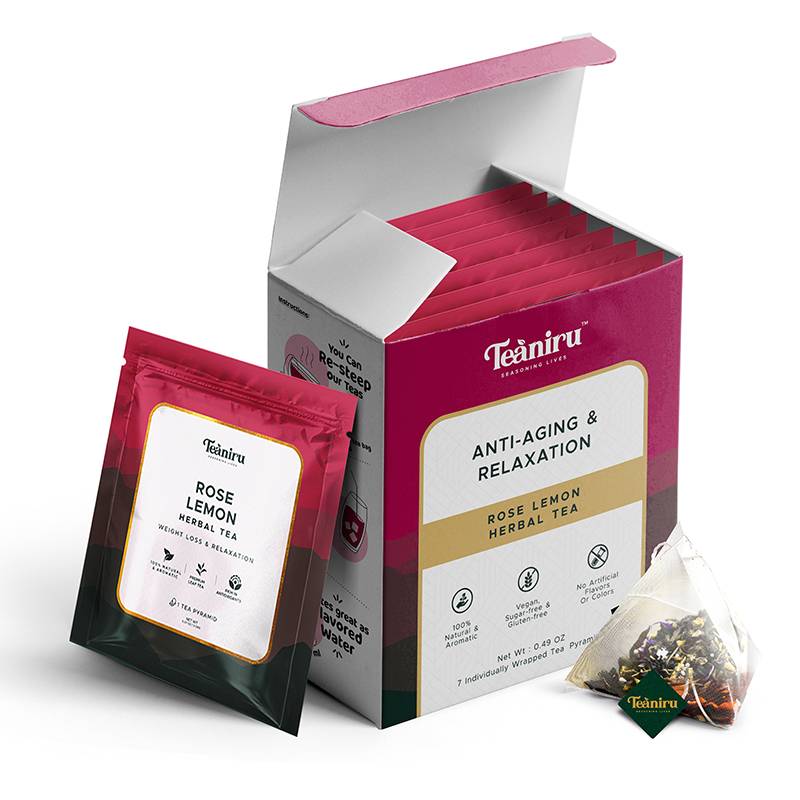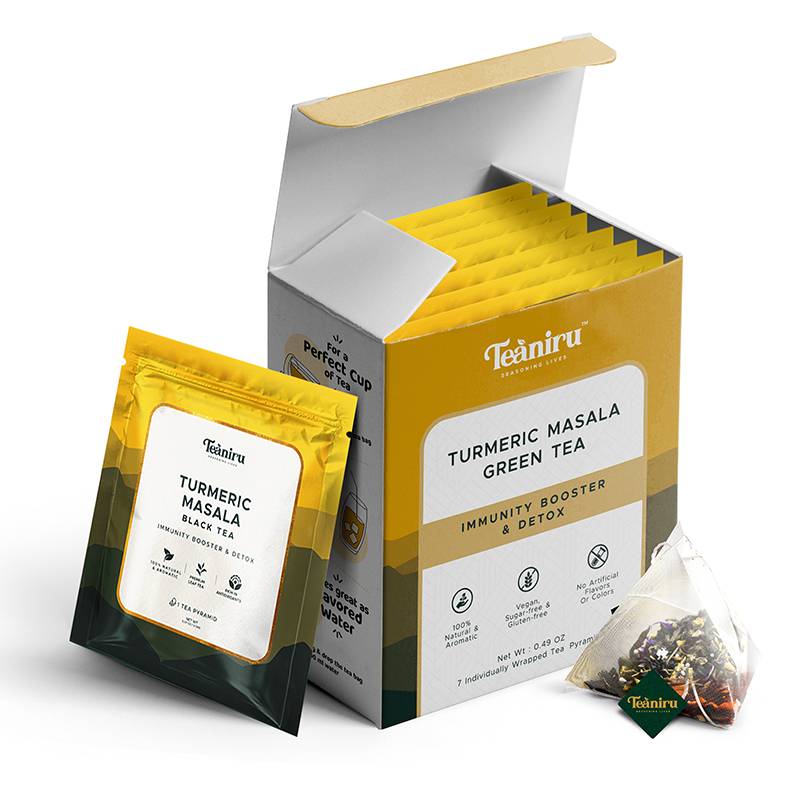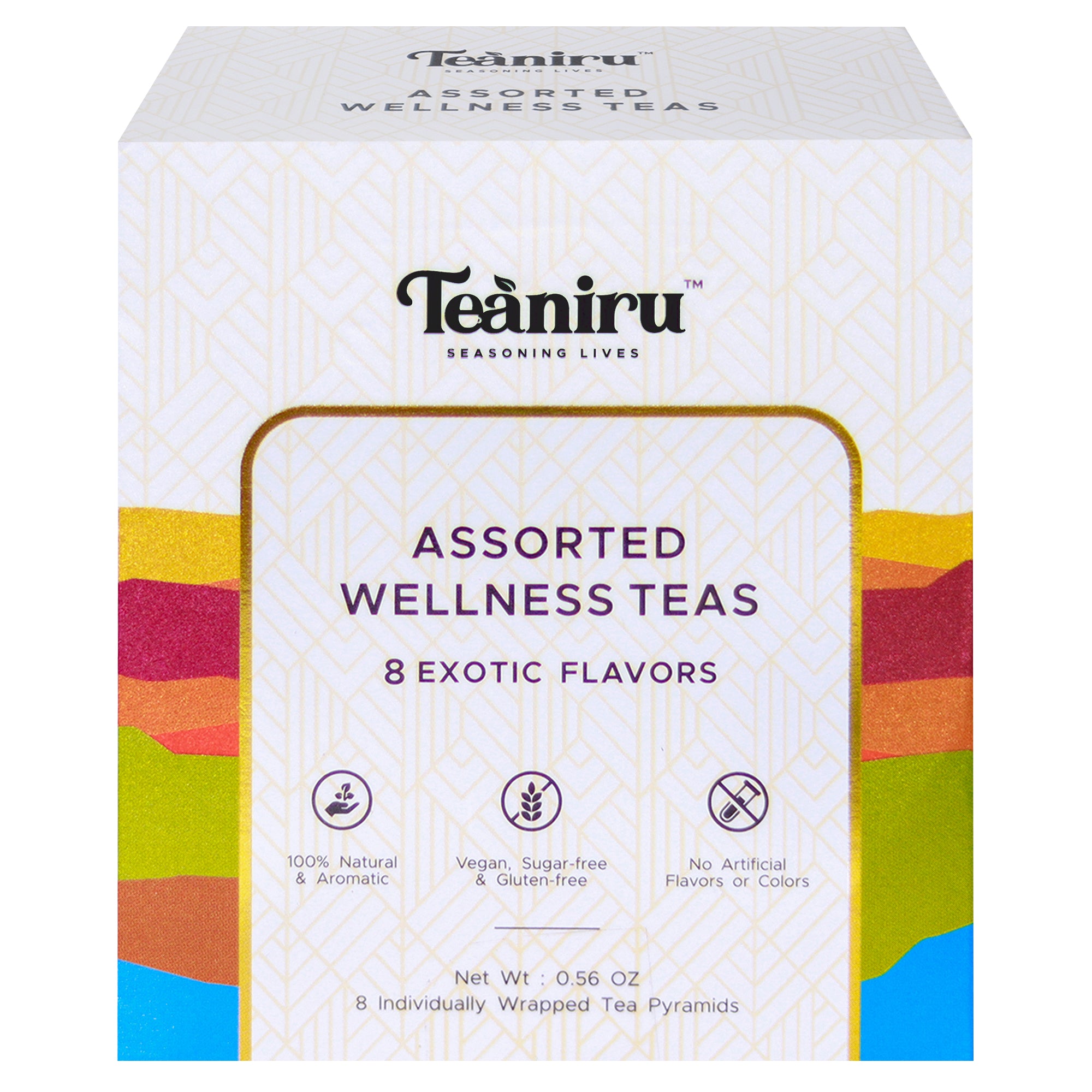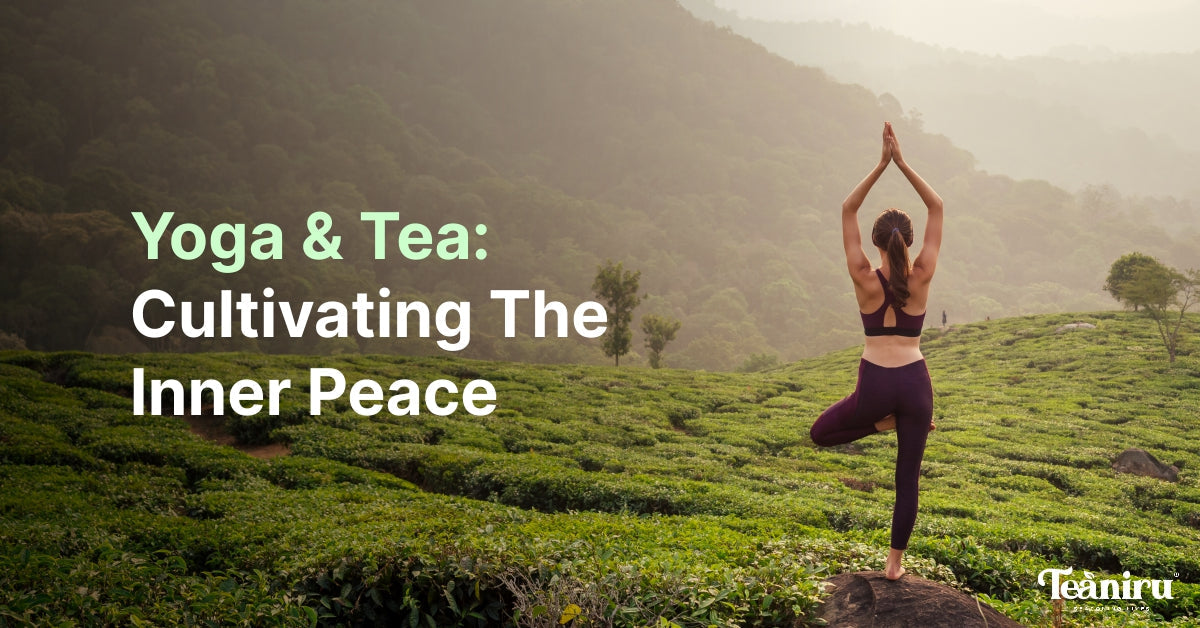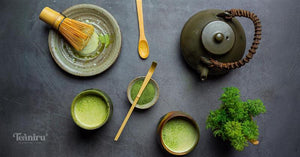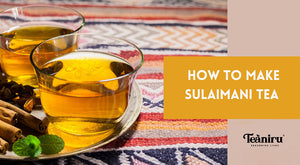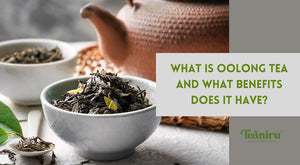You may also like
Are you looking for a way to enhance your yoga practice and take your mindfulness to the next level? Look no further than the perfect combination of yoga and tea! As we celebrate 2023’s International Yoga Day on June 21st, let's delve into the incredible benefits of pairing these two practices together.
From reducing stress and anxiety to promoting relaxation and mindfulness, combining yoga and tea is a powerful way to elevate your physical, mental, and spiritual well-being.
So, grab your yoga mat and a cup of tea, and let's explore the amazing benefits of this dynamic duo!
Why both?
Let’s jump into the history of this powerful duo. Tea and yoga have a rich cultural history and many traditions associated with them. The combination of these two practices can create a powerful tool for promoting mindfulness, relaxation, and spiritual well-being.
There are several tea rituals that have been practiced with yoga, each with its own unique history and cultural significance.
One such ritual is the Japanese Tea Ceremony, which involves the preparation and serving of matcha green tea. This ceremony is often performed before or after a yoga practice and is meant to promote mindfulness, harmony, and tranquility.
Another tea ritual is the Ayurvedic Tea Ritual, which is based on the ancient Indian system of medicine that emphasizes the connection between the mind, body, and spirit. Ayurvedic teas are made with herbs and spices that are believed to promote balance and harmony within the body. These teas are often consumed before or after a yoga practice to enhance its benefits.
Yogi Tea is a blend of spices and herbs that is often consumed before or after a yoga practice to promote relaxation and balance. The recipe for Yogi tea is based on an ancient Ayurvedic formula and has been passed down through generations of yogis.
Tea and yoga originated in ancient cultures that emphasized the mind-body-spirit connection. In India, tea has been used medicinally for centuries, while yoga has been practiced for thousands of years.
Modern yogis and tea enthusiasts have recognized the benefits of combining these practices, enhancing mindfulness, relaxation, and spirituality. Incorporating tea rituals into yoga practice can deepen practitioners' connection with themselves and their surroundings.
Role of Tea:
In terms of historical reasons, the use of herbal teas for medicinal purposes dates back thousands of years. Traditional healing systems such as Ayurveda and Traditional Chinese Medicine have long used herbal teas to promote health and well-being.
In Ayurveda, for example, specific herbs are used in tea blends to balance the body's doshas, or energies.
Yoga also has a long history of being practiced in conjunction with herbal remedies. In fact, yoga and Ayurveda are considered sister practices, and both emphasize the importance of promoting balance and harmony in the body and mind.
Mindfulness
Yoga and tea both promote mindfulness. It is all about being present and fully engaged in the moment, and the act of sipping tea mindfully can help you cultivate that state of being.
When combined with yoga, drinking tea mindfully can help you focus on the present moment and tune in to your body and breath, creating a deeper sense of mindfulness and connection to the present moment.
In addition, certain types of tea, such as herbal teas like chamomile or lavender, can have a calming effect on the body and promote relaxation, which can help to support mindfulness practice.
Reduce Stress and Anxiety
The compounds in tea, such as L-theanine, polyphenols, and adaptogens, help to reduce stress and anxiety by promoting relaxation, reducing inflammation, and supporting the body's stress response.
When combined with yoga, which reduces physical tension, regulates breathing, and promotes relaxation, the calming effects of tea are amplified.
The mindfulness practices of both yoga and tea also help to reduce stress and anxiety by promoting present moment awareness and calming the mind.
Together, yoga and tea create a powerful tool for managing stress and anxiety and promoting overall well-being.
Yoga Practice with Tea
There are many different types of yoga, and some are better suited to practicing with tea than others.
Gentle yoga, restorative yoga, and yin yoga are all great choices for practicing with tea, as they are slow-paced and emphasize relaxation and mindfulness.
Breathwork is an integral part of yoga practice, and drinking tea can help to support this aspect of the practice. Sipping tea slowly and mindfully can help to cultivate a deeper awareness of the breath and promote relaxation.
Timing That Benefits:
The timing of when you drink tea in relation to your yoga practice can also make a difference.
Drinking tea before your yoga practice can help to calm the mind and prepare the body for practice while drinking tea after your practice can help to soothe sore muscles and promote relaxation.
Recommended Tea to Drink
Not all teas are created equal when it comes to practicing yoga. Some teas are more beneficial than others due to their calming and grounding properties. Here are some recommended teas to drink before or after a yoga session:
Chamomile tea is a popular choice for relaxation and stress relief. It has a calming effect on the body and can help to improve sleep quality. It's also rich in antioxidants, which have numerous health benefits.
Peppermint tea is another excellent choice for relaxation. It has a cooling and calming effect on the body and can help to soothe the digestive system. It's also caffeine-free, making it a great choice for evening yoga sessions.
Green tea is a popular choice for its numerous health benefits. It's rich in antioxidants and has been shown to improve brain function, boost metabolism, and reduce the risk of chronic diseases. It also contains a small amount of caffeine, which can help to improve focus and energy levels during yoga practice.
Tea Wellness Community:
The tea community that practices yoga passionately is a vibrant and dynamic group with a shared interest in the transformative power of tea and yoga for holistic health and well-being.
Tea has long been used as a tool for social connection and community building.
Practicing yoga with tea can be a great way to connect with others and build a community around shared interests and values.
They offer a unique perspective on the intersection of these practices, and you can benefit from learning about their insights, experiences, and tips for incorporating these practices into your daily life.
The Takeaway:
Incorporating tea into your yoga practice can enhance the benefits of both practices and promote relaxation, mindfulness, and overall well-being.
By experimenting with different types of tea, timing, and rituals, you can create a personalized tea and yoga practice that supports your unique needs and goals.
So, the next time you roll out your yoga mat, don't forget to brew tea to enjoy before or after your practice!
